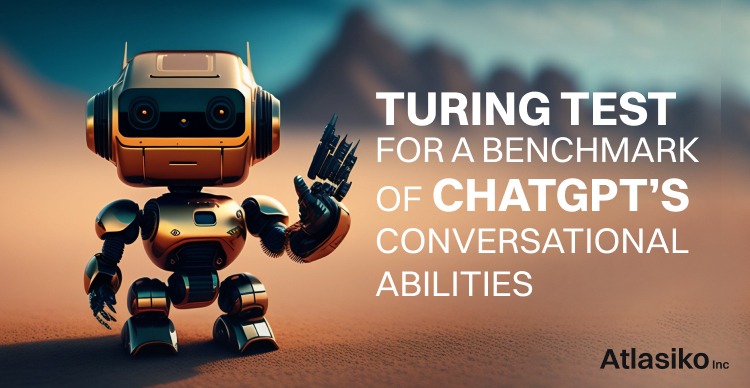Experience the cutting-edge technology of artificial intelligence with ChatGPT-4 from OpenAI. But wait, there's more! The development of GPT-5 is already underway, with major upgrades expected to be released by the end of the year, according to a report from BGR. And one of the most significant milestones of AI - the ability to converse indistinguishably from humans - will be achieved if the 5th iteration actually happens. And it doesn't matter that we have been training ChatBot with immense amount of conversations. The next release is expected to exeed all predictions.
Alan Turing - AI innovator - presented a test for a benchmark of artificial intelligence's conversational abilities. The idea is speaking to a computer (without knowing it) and if an individual does not distinguish the conversation from human talk it means the computer is artificially intelligent. So, ChatGPT passed the test with the mark that describes the technology as good for everyday use.
While the speed of the technology's advancement is impressive, there are still concerns over the consequences of such rapid progress. One of the primary concerns is the rise of malware scams, data collection issues, and intellectual property violations due to ChatGPT's integration into various applications. However, it's not just experts who are arguing about the unchecked progress of AI technology. Notable figures such as Steve Wozniak and Elon Musk have joined the Future of Life Institute (FLI) in calling for an immediate halt to OpenAI's system development beyond ChatGPT-4.
The FLI highlighted in its letter, "Unfortunately, this level of planning and management is not happening, even though recent months have seen AI labs locked in an out-of-control race to develop and deploy ever more powerful digital minds that no one – not even their creators – can understand, predict, or reliably control.”
Nonetheless, companies are integrating the technology into their operations without sufficient regard for data privacy, intellectual property rights, and other potential ethical concerns. As a result, it causes a myriad of problems.
In conclusion, until organizations can ensure the safe and responsible use of AI technology, development should be delayed. It's time to take a step back and consider the long-term implications of such fast technological progress. s ab
Also, in our previous news about Сonversational AI - revolutionizing impetus with human-like interaction the technology expected to change all industries.
Certainly, it impacts all sides of people's lives. As well as news about the Organoid intelligence field for biocomputers’ abilities turned out to be a game-changer in the world of computing.







